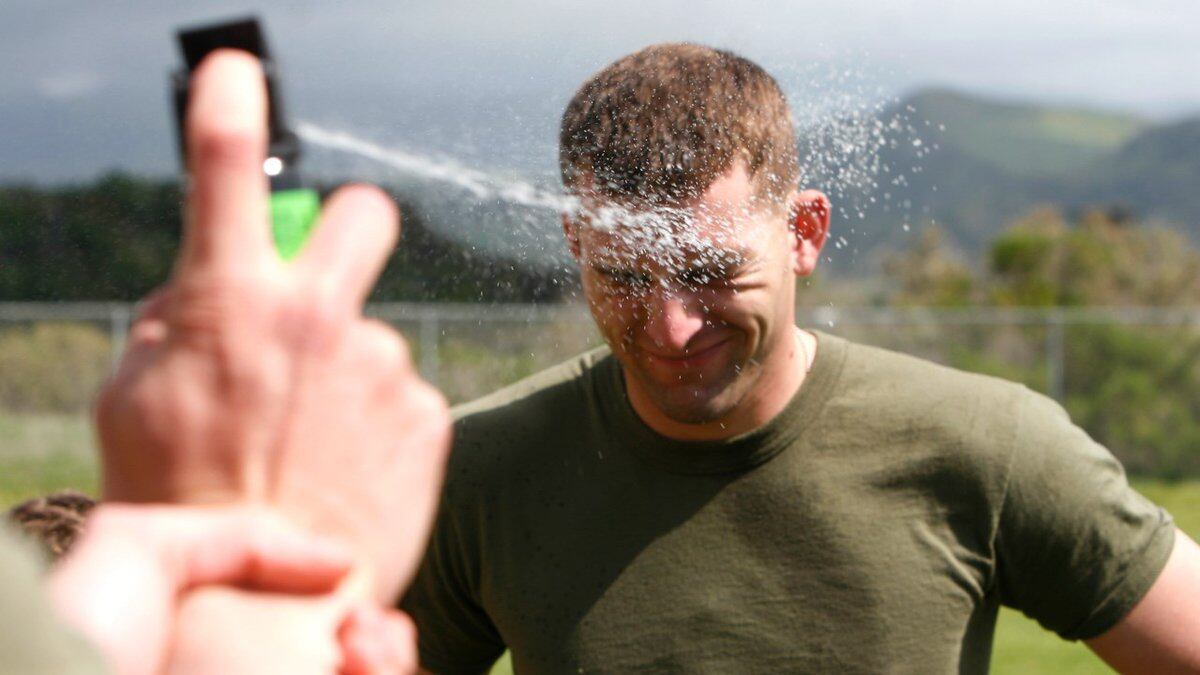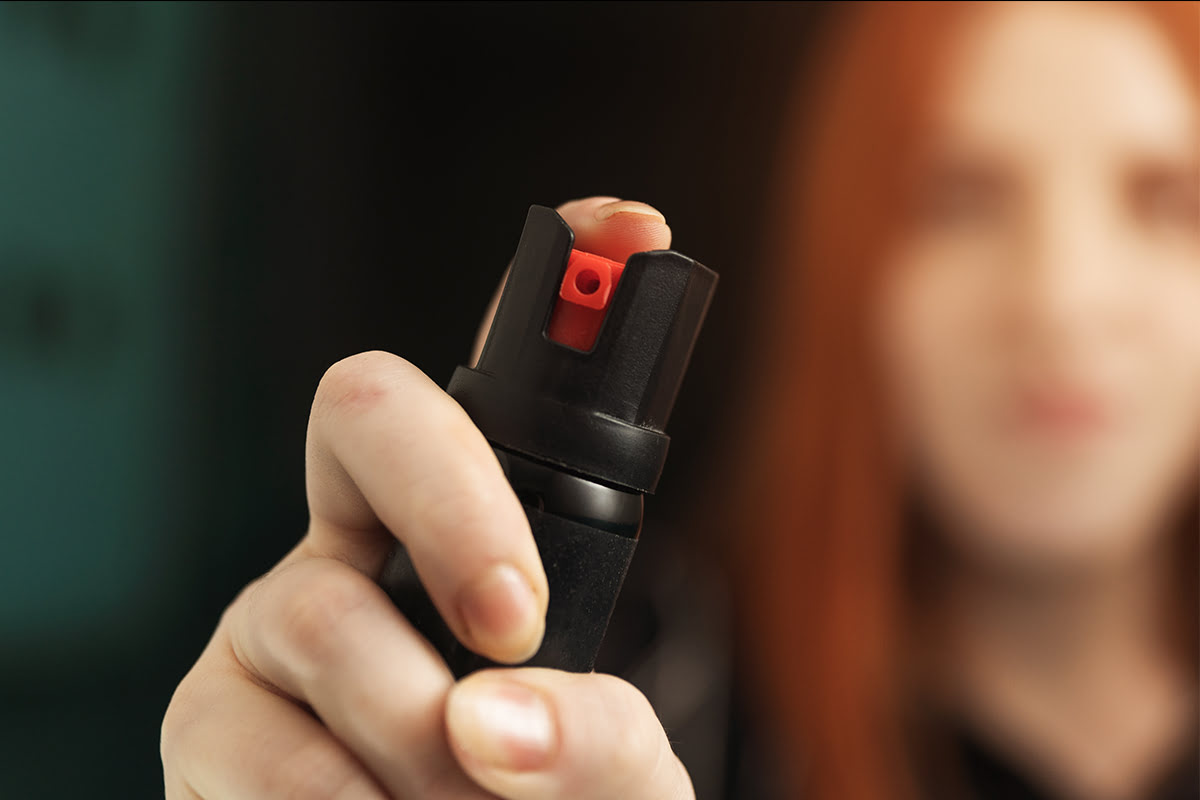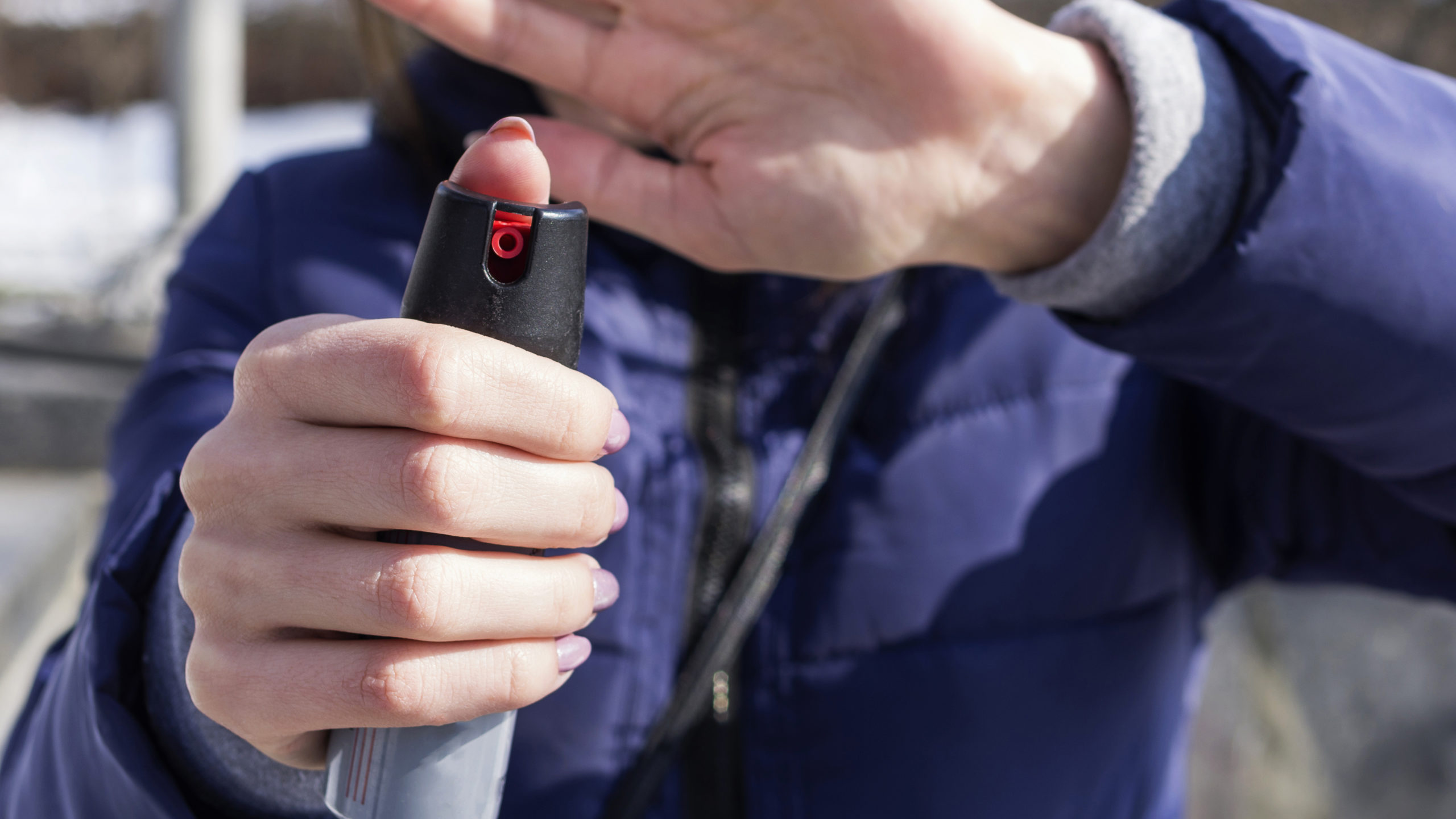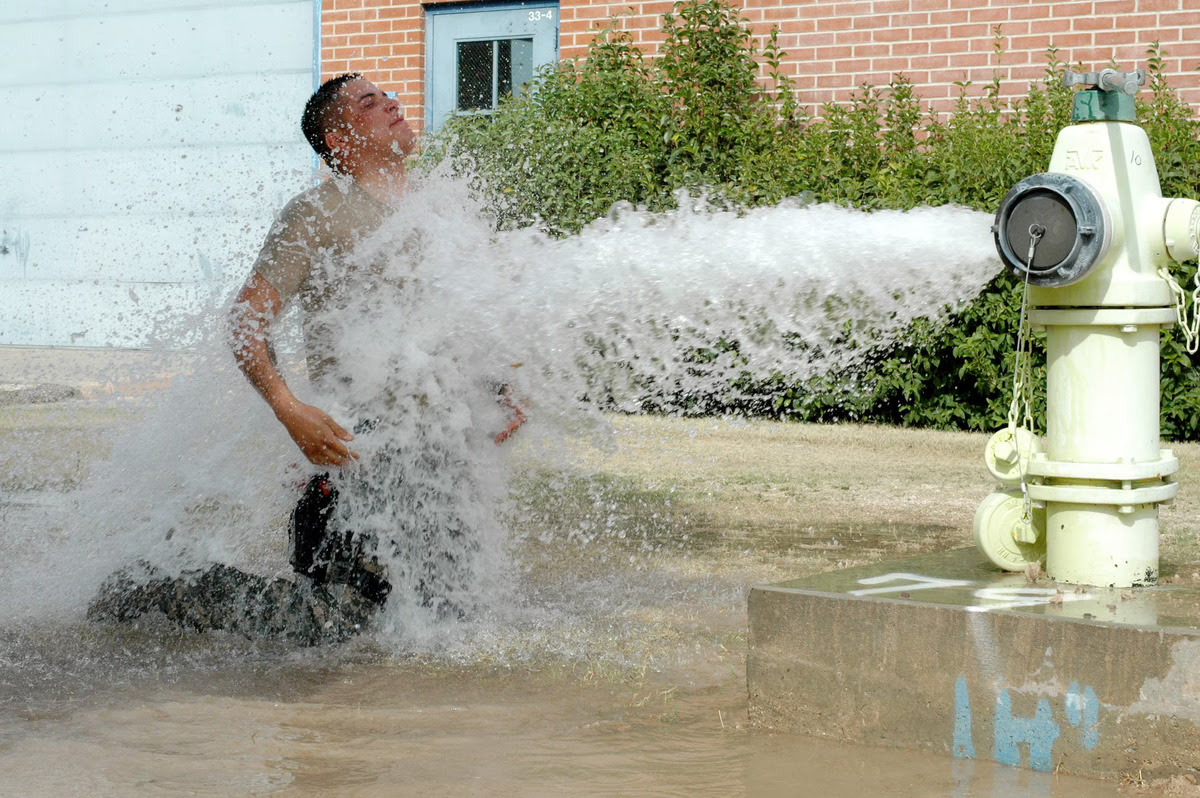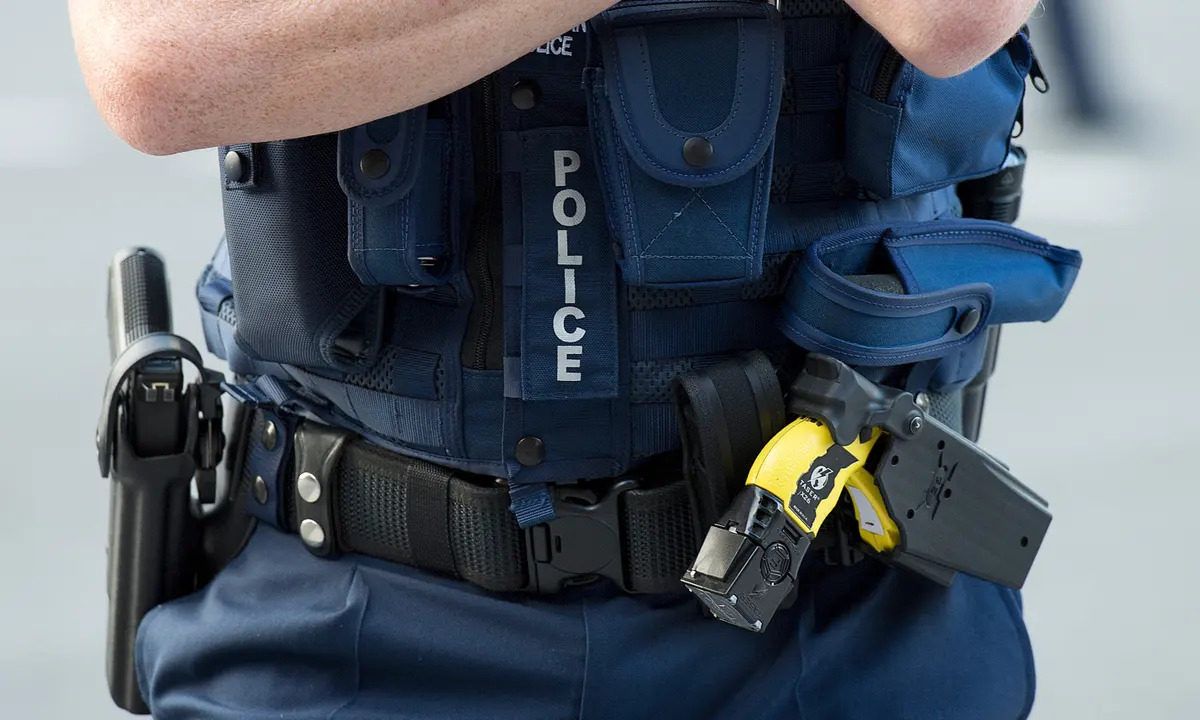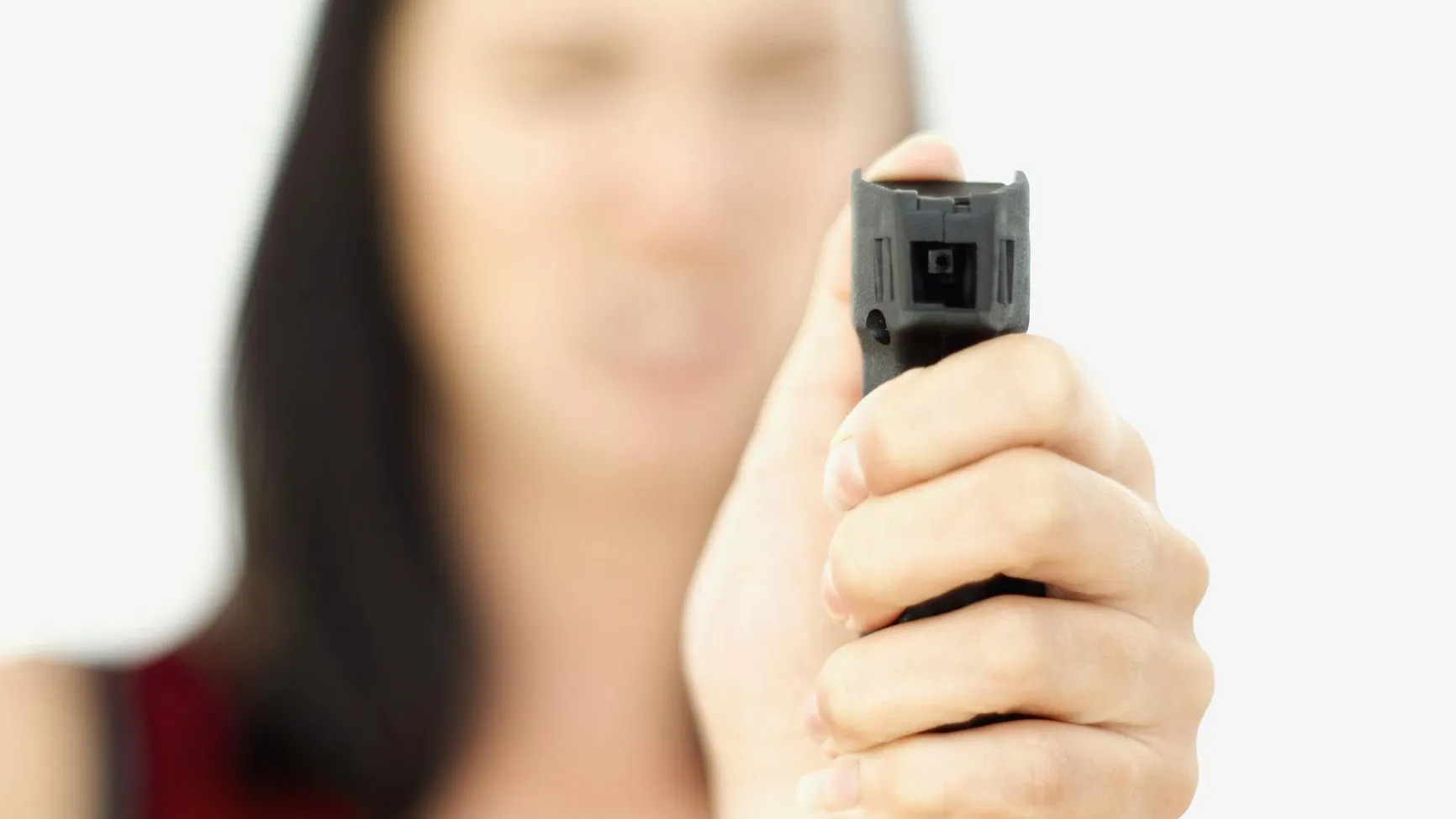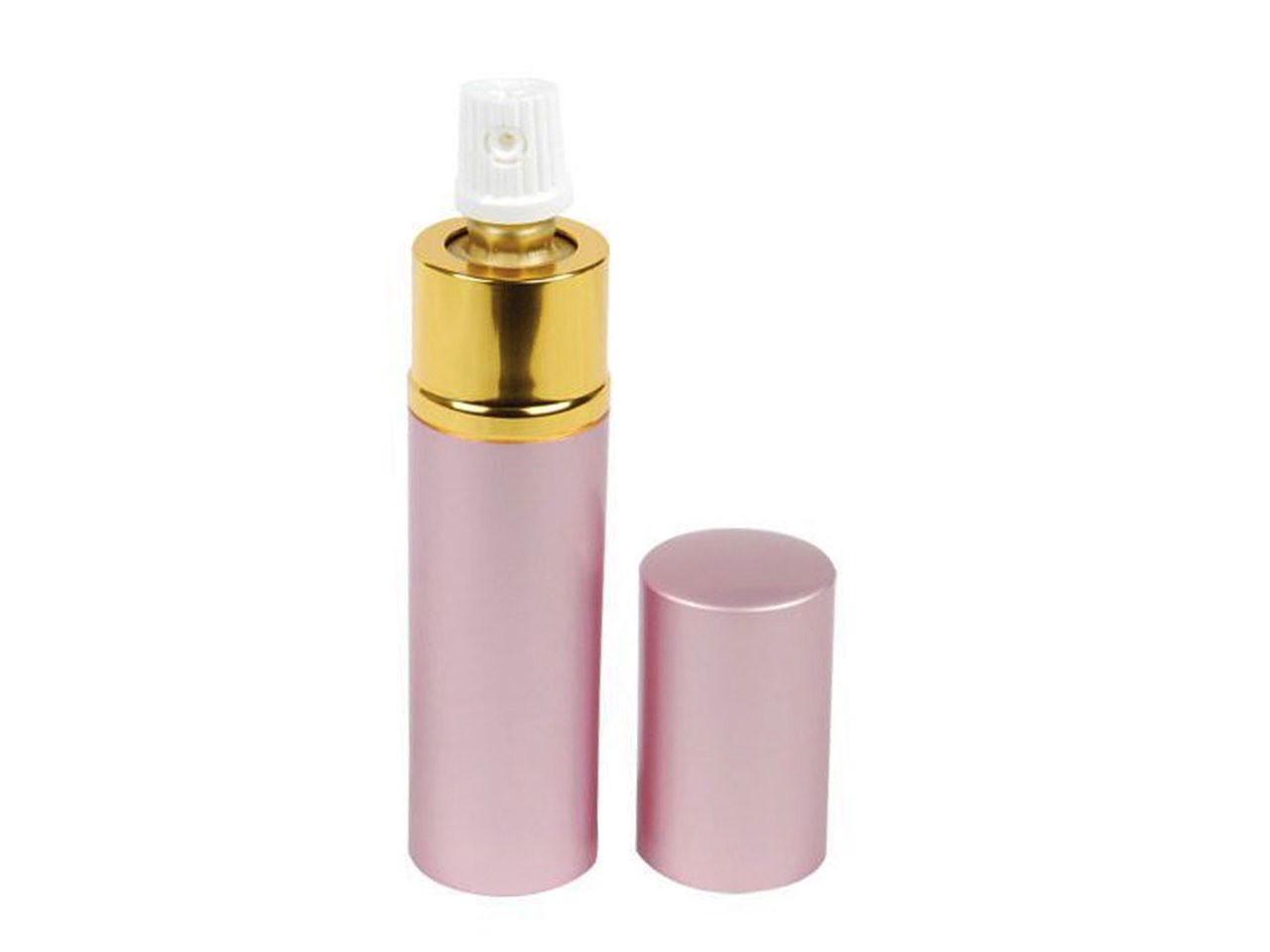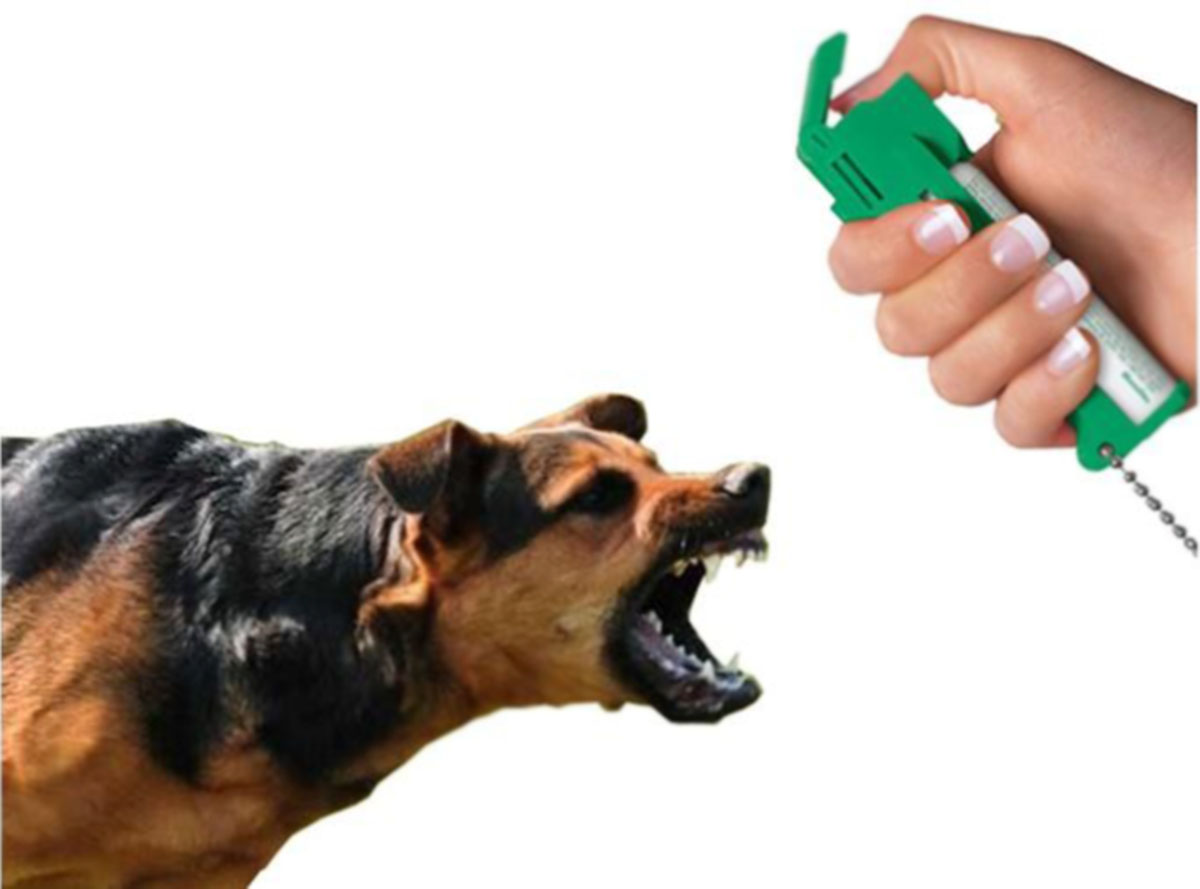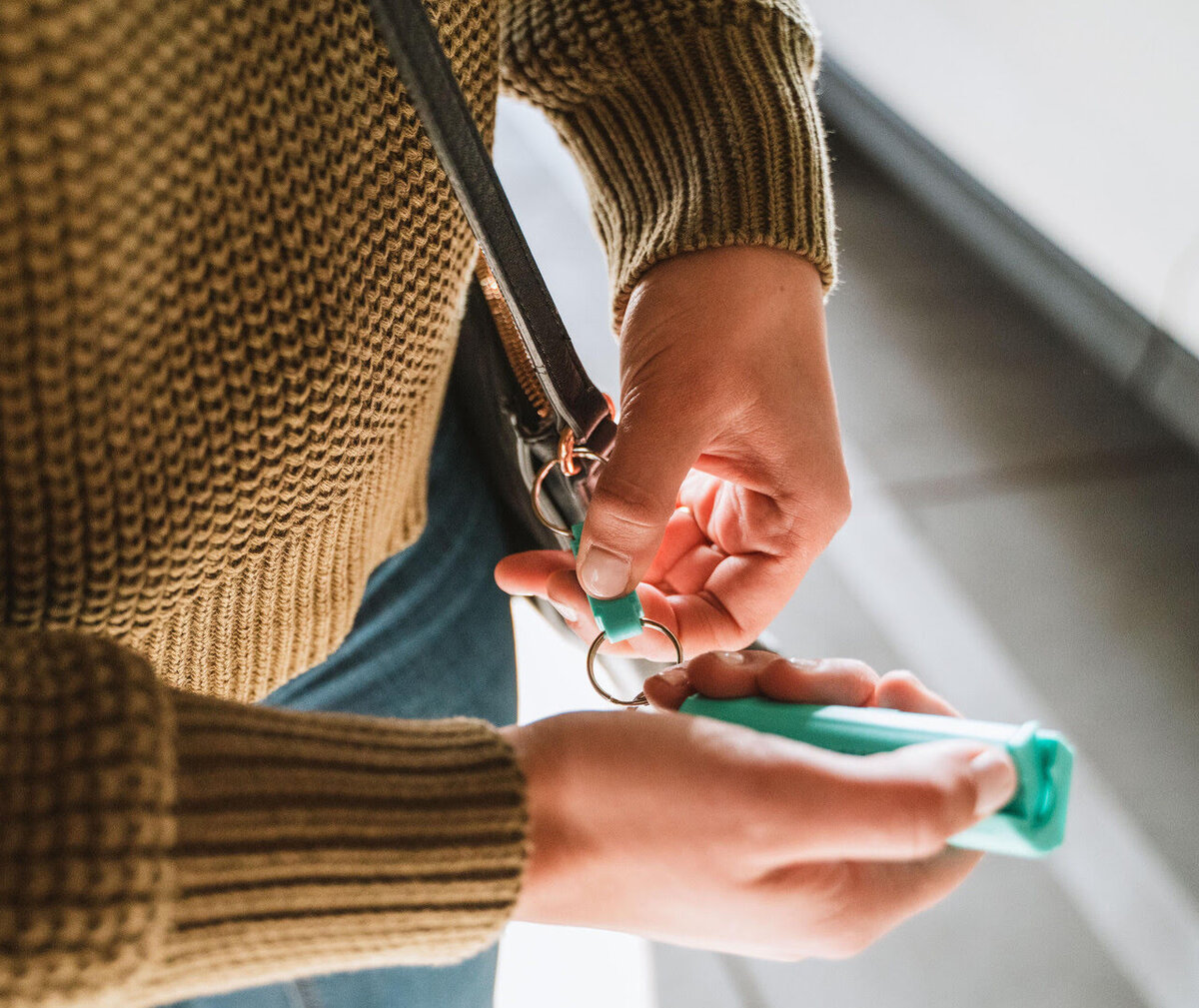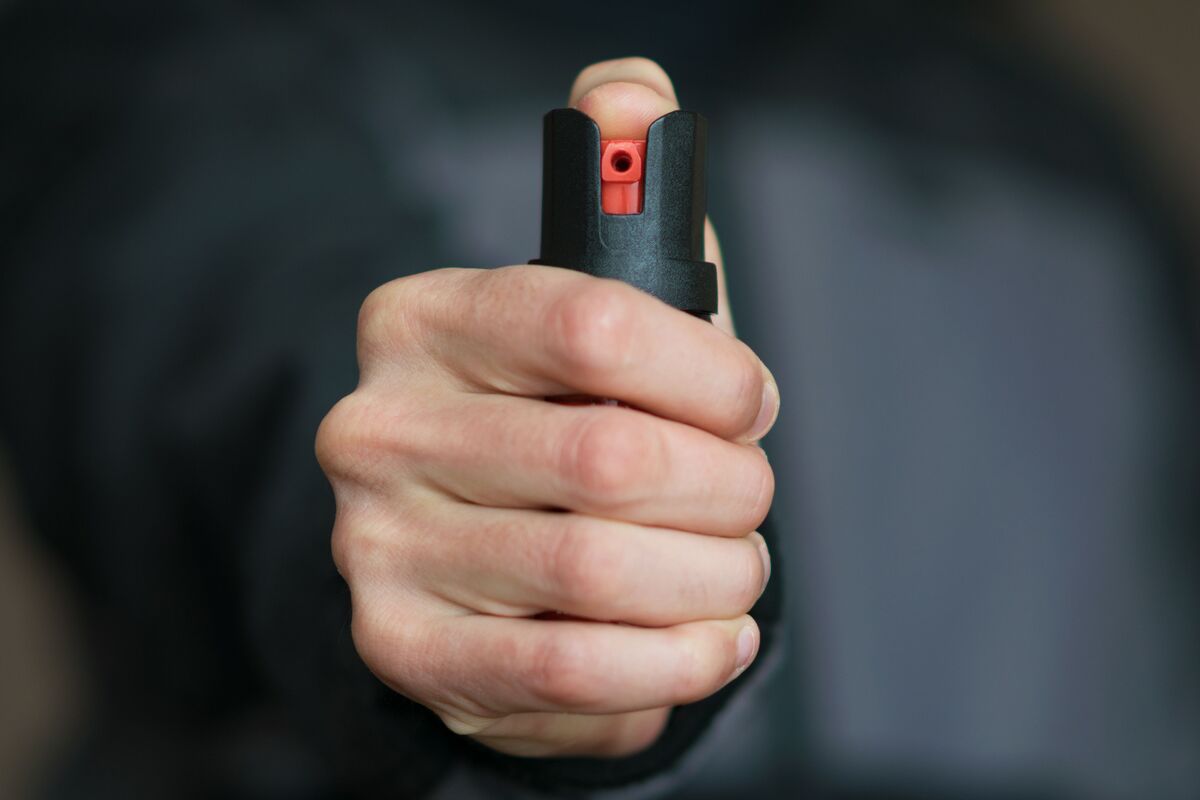Home>Home Security and Surveillance>How Do You Neutralize Pepper Spray?
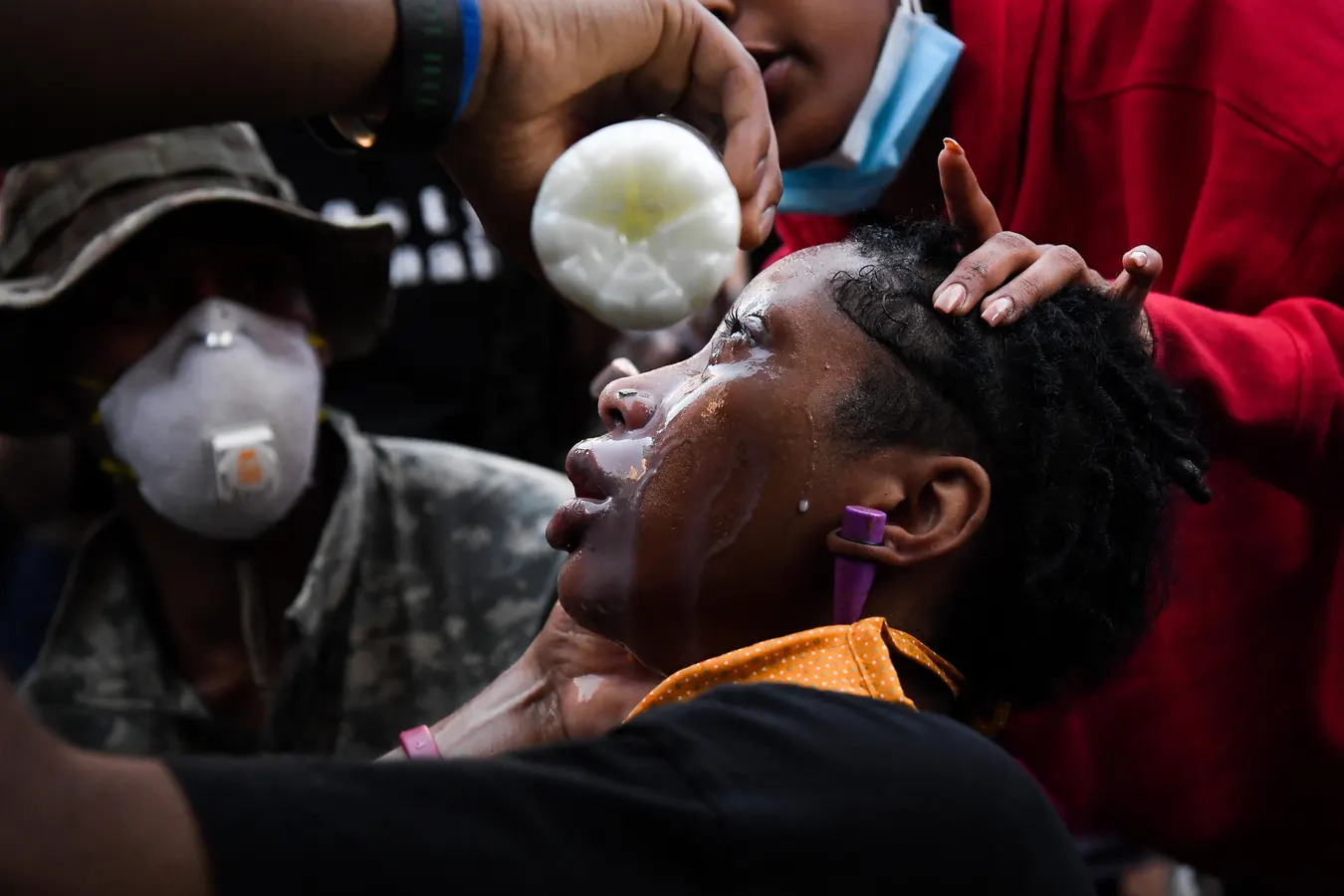

Home Security and Surveillance
How Do You Neutralize Pepper Spray?
Modified: March 21, 2024
Discover effective ways to neutralize pepper spray at home with our comprehensive guide on home security and surveillance. Protect yourself and your loved ones with our expert tips and techniques.
(Many of the links in this article redirect to a specific reviewed product. Your purchase of these products through affiliate links helps to generate commission for Storables.com, at no extra cost. Learn more)
Introduction
When it comes to personal safety and self-defense, pepper spray has become a popular choice for many individuals. This powerful deterrent is designed to incapacitate an attacker by causing intense burning and inflammation in the eyes, nose, and throat. While pepper spray can be highly effective in fending off an assailant, there may be situations where it becomes necessary to neutralize the effects of pepper spray. In this article, we will explore how to neutralize pepper spray and provide you with valuable tips to ensure your safety.
Key Takeaways:
- Neutralizing pepper spray involves rinsing with cool water, avoiding rubbing the eyes, and using household items like milk or vinegar for temporary relief.
- Prioritize safety, follow recommended steps, and seek medical help if needed to effectively neutralize the effects of pepper spray exposure.
Read more: What To Do When Sprayed With Pepper Spray
What is pepper spray?
Pepper spray, also known as OC (oleoresin capsicum) spray, is a non-lethal self-defense tool that contains a concentrated oil derived from chili peppers. It is typically packaged in a small canister that can be easily carried in a pocket or purse. When sprayed directly on an attacker, pepper spray causes severe irritation and pain in the eyes, throat, and respiratory system, impairing their ability to continue their assault.
The active ingredient in pepper spray is capsaicin, a chemical compound found in chili peppers. When sprayed, capsaicin binds to the receptors in the eyes, triggering an intense burning sensation, swelling, and temporary blindness. It also causes uncontrollable coughing, difficulty breathing, and a burning sensation in the nose and throat.
Pepper spray is widely used by law enforcement agencies, security personnel, and individuals for self-defense purposes. It provides an effective means of temporarily immobilizing an attacker, allowing the victim to escape and seek help.
It is important to note that pepper spray is legal for civilian use in many areas, but it may be subject to restrictions and regulations. It is crucial to familiarize yourself with the laws and regulations regarding the use of pepper spray in your jurisdiction before purchasing or carrying it.
Effects of pepper spray exposure
Pepper spray is known for its potent effects on the human body, incapacitating an attacker by causing intense pain and inflammation. The effects of exposure to pepper spray can vary depending on the individual and the concentration of the spray used. Here are some of the common effects:
- Severe eye irritation: When pepper spray comes into contact with the eyes, it causes immediate and intense pain, redness, and swelling. Vision becomes blurry, and the person may experience temporary blindness. The eyes may also produce excessive tears as a defense mechanism against the irritant.
- Respiratory distress: Inhaling pepper spray can lead to coughing, shortness of breath, and a burning sensation in the throat and chest. This can make it difficult for the person to breathe properly.
- Skin irritation: Direct contact with pepper spray can cause irritation, redness, and a burning sensation on the skin. Some individuals may experience a rash or blistering, especially if their skin is sensitive.
- Disorientation and panic: The intense pain and discomfort caused by pepper spray can leave the person feeling disoriented and panicked. This can make it challenging for them to think clearly or make rational decisions.
- Temporary incapacitation: Overall, the effects of pepper spray can temporarily incapacitate an attacker, allowing the victim to escape and seek help. The pain and discomfort can be debilitating, rendering the person immobile for several minutes.
It is important to note that the effects of pepper spray are temporary and typically subside within 30 minutes to an hour. However, individuals with pre-existing respiratory conditions or sensitivities may experience more severe and prolonged symptoms. If you or someone you know has been exposed to pepper spray and is experiencing severe distress, it is advisable to seek medical attention.
Safety precautions before attempting to neutralize pepper spray
Before attempting to neutralize the effects of pepper spray, it is important to prioritize your safety and take certain precautions. Here are some safety measures to consider:
- Protective gear: Wear protective gear, such as gloves, safety glasses, and a face mask, to shield yourself from any residue or particles of the pepper spray.
- Find a well-ventilated area: Move to an open area with good ventilation to minimize the concentration of pepper spray particles in the air. Fresh air circulation will help dissipate the irritants more quickly.
- Ensure personal safety: Ensure that you are in a safe location away from any potential threats or attackers. Neutralizing pepper spray requires focus and attention, so make sure you are not distracted by external factors.
- Have a water source nearby: Keep a supply of clean water readily available to rinse the affected areas. A faucet, water bottle, or spray bottle can be useful in flushing out the pepper spray residue.
- Read and follow instructions: If you have access to the product’s instructions or manual, read them carefully before attempting any neutralization methods. Different types of pepper sprays may require specific approaches, so follow the manufacturer’s recommendations if available.
- Seek medical help if needed: If you or someone else experiences severe symptoms or has an allergic reaction to pepper spray, it is crucial to seek medical assistance immediately. Some individuals may require professional medical care to ensure their well-being.
Remember, your safety should always take precedence. If you are unsure or uncomfortable with attempting to neutralize pepper spray on your own, it is best to seek assistance from trained professionals or medical personnel.
To neutralize pepper spray, use a solution of 1-part baking soda to 5-parts water and gently wash the affected area. Avoid rubbing, as it can spread the spray. Rinse with cool water.
Recommended steps to neutralize pepper spray
Neutralizing the effects of pepper spray requires prompt action and the use of certain techniques. Follow these recommended steps to help alleviate the discomfort and minimize the impact:
- Move to a safe location: If possible, step away from the area where the pepper spray was deployed. Fresh air and distance will help reduce exposure to the irritants.
- Keep your eyes closed: Avoid rubbing your eyes, as this may spread the pepper spray and intensify the effects. Instead, keep your eyes closed to prevent further irritation.
- Remove contaminated clothing: If any clothing or accessories have been exposed to pepper spray, carefully remove them to prevent further contact with the skin.
- Rinse with cool water: Immediately flush the affected areas with cool water. Use a faucet, shower, or a spray bottle filled with water to rinse away the pepper spray residue. Make sure the water is not too hot, as heat can exacerbate the burning sensation.
- Avoid touching your face: Be cautious not to touch your face or other sensitive areas while rinsing off the pepper spray. This will prevent the transfer of the irritants to other parts of your body.
- Keep blinking: Blink your eyes repeatedly during the rinsing process to help flush out any remnants of pepper spray. This can expedite relief from the stinging sensation in the eyes.
- Use a mild soap or shampoo: After flushing with water, apply a small amount of mild soap or shampoo to help remove any remaining pepper spray residue. Gently lather and rinse thoroughly with cool water.
- Avoid harsh chemicals: Refrain from using harsh chemicals or cleaners, as they can potentially worsen the irritation. Stick to simple, mild soap and water for cleansing.
- Pat dry: After rinsing, gently pat your face and affected skin areas dry with a clean towel. Avoid rubbing, as it may irritate the skin further.
- Seek medical attention if necessary: If the discomfort persists or worsens despite following these steps, or if you have any concerns about potential side effects, it is advised to seek medical attention for further evaluation and treatment.
Remember, individual reactions and sensitivity to pepper spray may vary. Following these steps can help alleviate the effects, but if symptoms persist or are severe, it is best to consult with a healthcare professional.
Common household items that can be used to neutralize pepper spray
When it comes to neutralizing the effects of pepper spray, you may have several basic household items readily available that can provide relief. While these items may not completely eliminate the effects, they can help alleviate the discomfort. Here are some common household items that can be used:
- Water: Water is one of the most accessible and effective resources for neutralizing pepper spray. Flushing the affected areas with cool water helps to dilute the capsaicin and wash away the irritants.
- Milk: Milk contains casein, a protein that can help neutralize the effects of pepper spray. Soaking a cloth or cotton balls in cold milk and gently applying it to the affected areas can provide temporary relief.
- Vegetable oil: Vegetable oil can help dissolve the capsaicin oil found in pepper spray. Applying a small amount of oil to the affected skin can provide some relief, but be cautious not to spread it around or get it into your eyes.
- Vinegar: Vinegar can provide some relief due to its acidic properties. Diluting vinegar with water and using it as a rinse or compress can help neutralize the effects of pepper spray.
- Lemon juice: The acidic nature of lemon juice can help neutralize the irritants in pepper spray. Squeezing fresh lemon juice onto a cloth and gently applying it to the affected areas can offer temporary relief.
- Baking soda solution: Mixing baking soda with water creates a solution that can help provide relief from the burning sensation caused by pepper spray. Apply the solution to the affected areas and rinse with cool water after a few minutes.
- Antacid tablets: Dissolving antacid tablets in water can create a solution that can help neutralize the effects of pepper spray. Soak a cloth in the solution and use it as a compress on the affected areas.
- Hydrocortisone cream: If you have hydrocortisone cream available, applying a thin layer to the affected skin can help alleviate inflammation and reduce itching caused by pepper spray exposure.
- Cold compress: A cold compress, such as an ice pack or a bag of frozen vegetables wrapped in a cloth, can help numb the affected areas and reduce swelling and inflammation caused by pepper spray exposure.
Remember, while these household items may provide temporary relief, they may not completely eliminate the effects of pepper spray. It is important to seek professional medical help if the symptoms persist or worsen.
Additional tips for treating pepper spray exposure
Dealing with the effects of pepper spray exposure can be distressing. In addition to the steps mentioned earlier, here are some additional tips to help alleviate the discomfort and treat pepper spray exposure:
- Avoid touching your face: To prevent further spread of the pepper spray, avoid touching your face or other sensitive areas. This can help minimize the risk of accidentally transferring the irritants to other parts of your body.
- Do not rub your eyes: Rubbing your eyes can exacerbate the pain and irritation caused by pepper spray. Instead, try to keep your eyes closed and allow the tears and rinsing to naturally flush out the irritants.
- Use baby shampoo for eye rinse: If you have access to baby shampoo, it can be used as a gentle eye rinse. Mix a small amount of baby shampoo with water and carefully rinse your eyes to help remove any leftover residue.
- Apply a topical analgesic: Over-the-counter topical analgesics, such as lidocaine or aloe vera gel, can provide temporary relief from the burning sensation and alleviate inflammation caused by pepper spray exposure. Apply a thin layer to the affected areas as directed.
- Practice good hygiene: After treating the pepper spray exposure, thoroughly wash your hands, face, and any affected areas with mild soap and water. This will help remove any remaining residue and prevent accidental transfer to other surfaces.
- Seek fresh air: If you are indoors or in an enclosed space, move to an area with good ventilation. Fresh air can help reduce the concentration of pepper spray particles and provide some relief.
- Change and wash contaminated clothing: If your clothing has been exposed to pepper spray, remove and wash them separately from other items. Use mild detergent and follow the care instructions to remove any residue effectively.
- Stay calm and take deep breaths: Remaining calm and taking deep breaths can help manage anxiety and reduce the feeling of suffocation or difficulty breathing caused by pepper spray exposure.
- Allow time for recovery: The effects of pepper spray exposure typically subside within 30 minutes to an hour. Allow yourself time to rest and recover, and avoid activities that may exacerbate discomfort during this period.
- Seek medical attention if necessary: If you experience severe or prolonged symptoms, have difficulty breathing, or have concerns about your well-being, it is important to seek medical attention promptly. A healthcare professional can provide further evaluation and recommend appropriate treatment, if needed.
Remember, everyone’s reaction to pepper spray exposure may vary, and these tips are intended to provide general guidance. If you have any concerns or questions, it is always best to consult with a healthcare professional for personalized advice.
Conclusion
Pepper spray is a popular self-defense tool that can provide temporary relief and disable an attacker. However, situations may arise where it becomes necessary to neutralize the effects of pepper spray. By following safety precautions, understanding the effects of pepper spray exposure, and implementing the recommended steps, you can effectively minimize the discomfort caused by pepper spray.
Remember to prioritize your safety when attempting to neutralize pepper spray. Find a safe location, protect yourself with appropriate gear, and ensure you have access to water or household items that can help reduce the effects of pepper spray. Additionally, seek medical assistance if the symptoms persist or worsen.
It is essential to familiarize yourself with the laws and regulations regarding the use of pepper spray in your jurisdiction. Ensure that you are using pepper spray responsibly and in accordance with local laws, as it is primarily intended for self-defense purposes.
By understanding how to neutralize pepper spray effectively and taking the necessary precautions, you can ensure your own safety and minimize any potential harm caused by its effects. Stay informed, stay prepared, and always prioritize your well-being when dealing with pepper spray exposure.
Remember, this article is intended for informational purposes only and does not substitute professional medical advice. Always consult with a healthcare professional for specific guidance regarding pepper spray exposure and its treatment.
Frequently Asked Questions about How Do You Neutralize Pepper Spray?
Was this page helpful?
At Storables.com, we guarantee accurate and reliable information. Our content, validated by Expert Board Contributors, is crafted following stringent Editorial Policies. We're committed to providing you with well-researched, expert-backed insights for all your informational needs.
